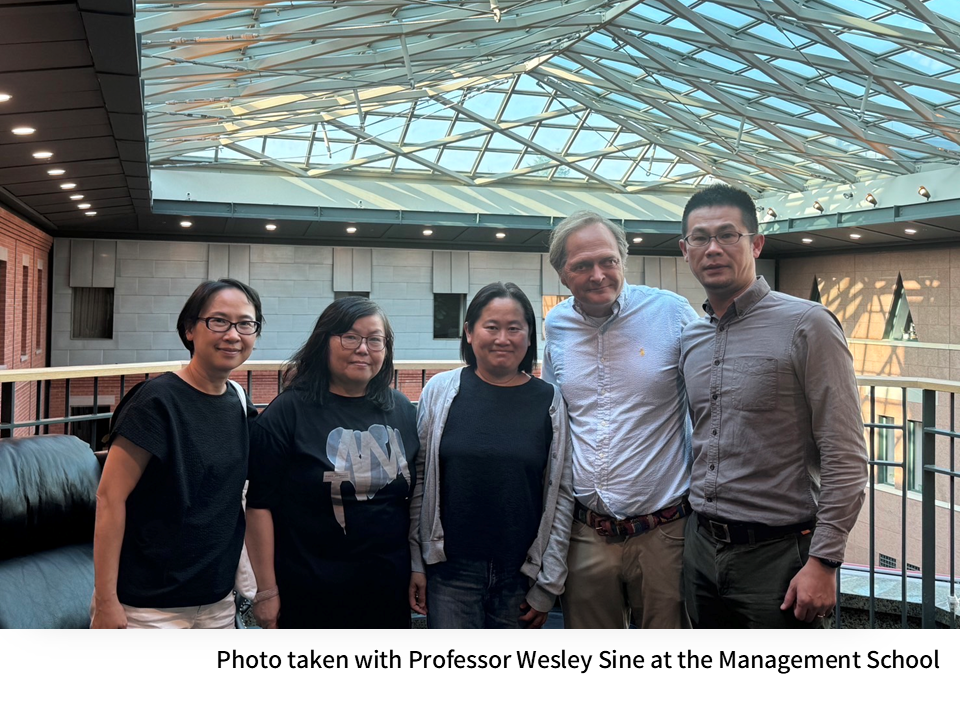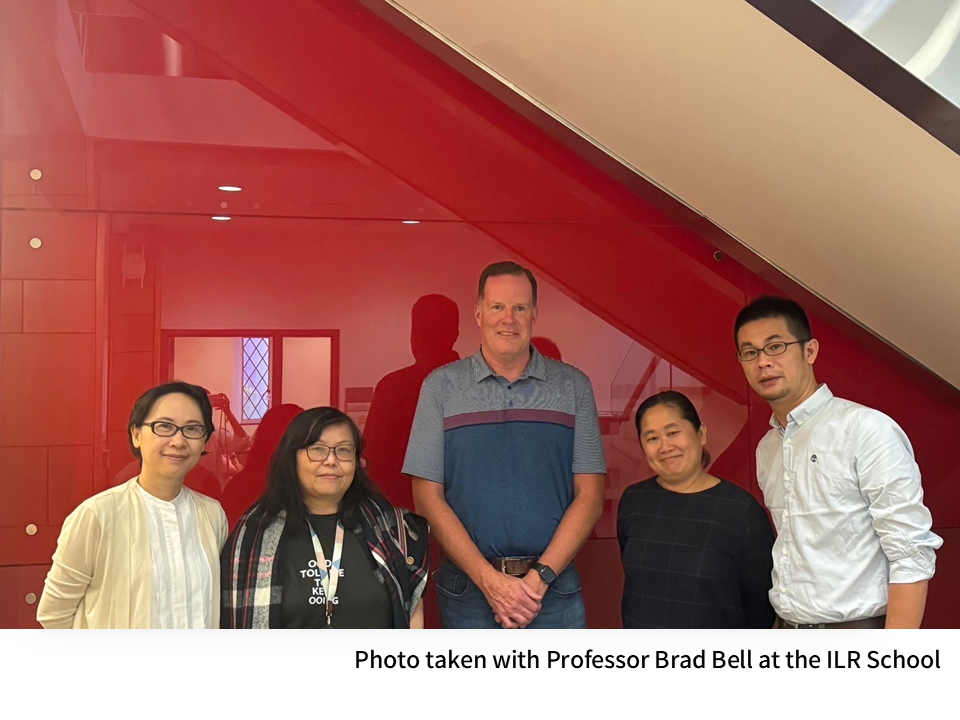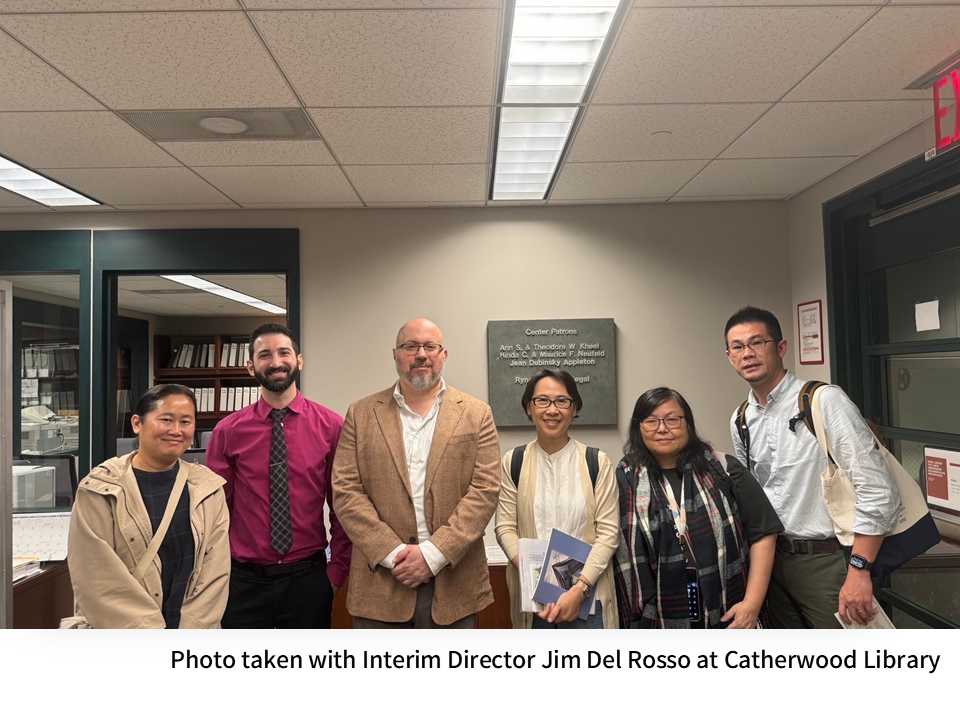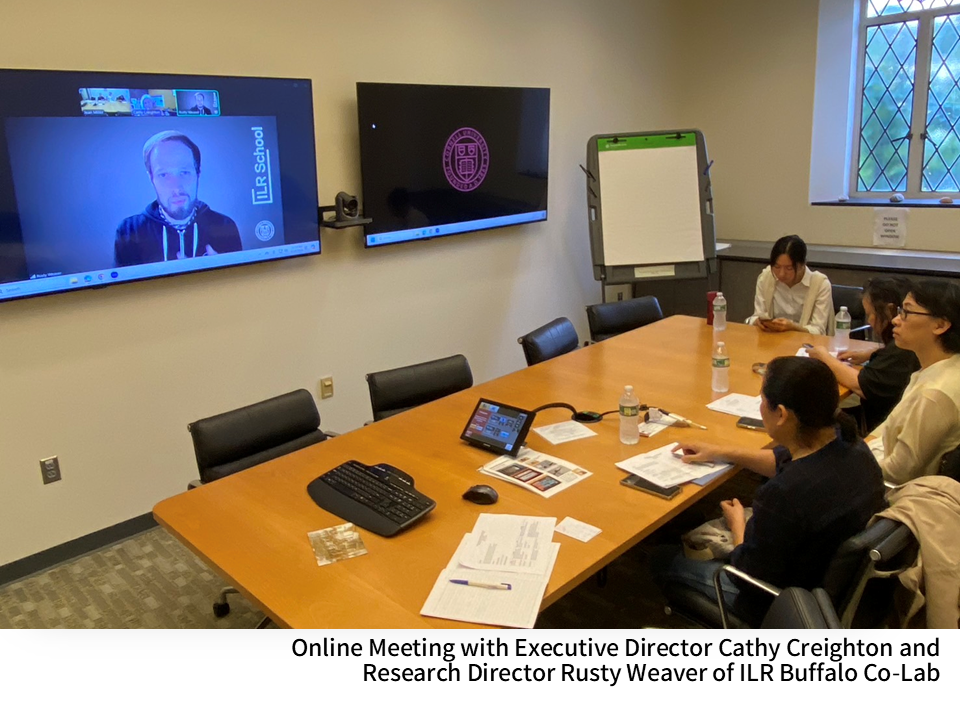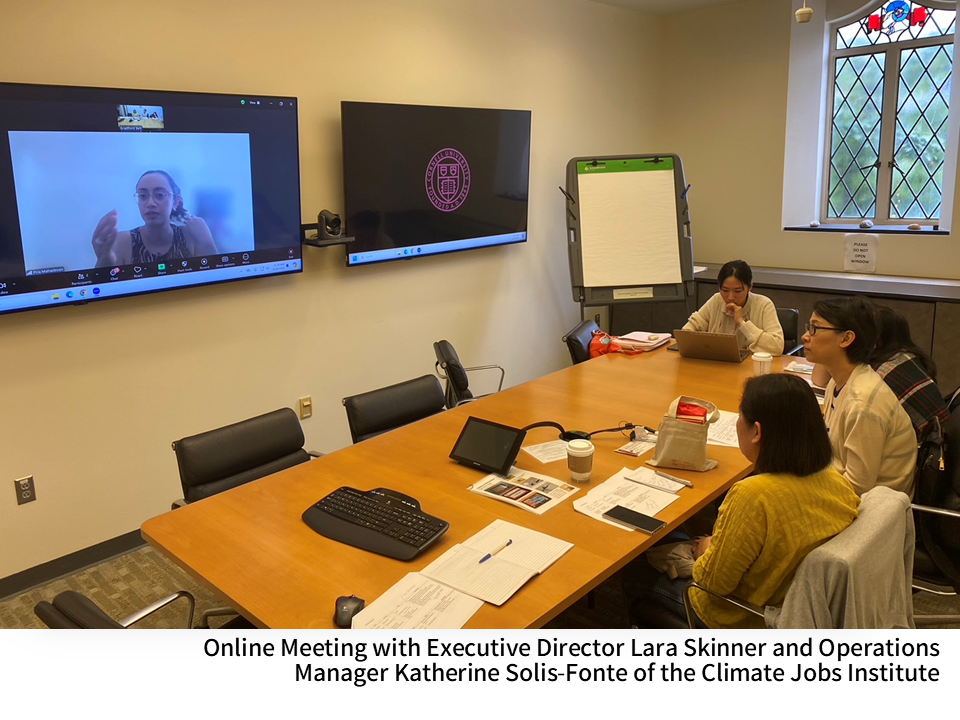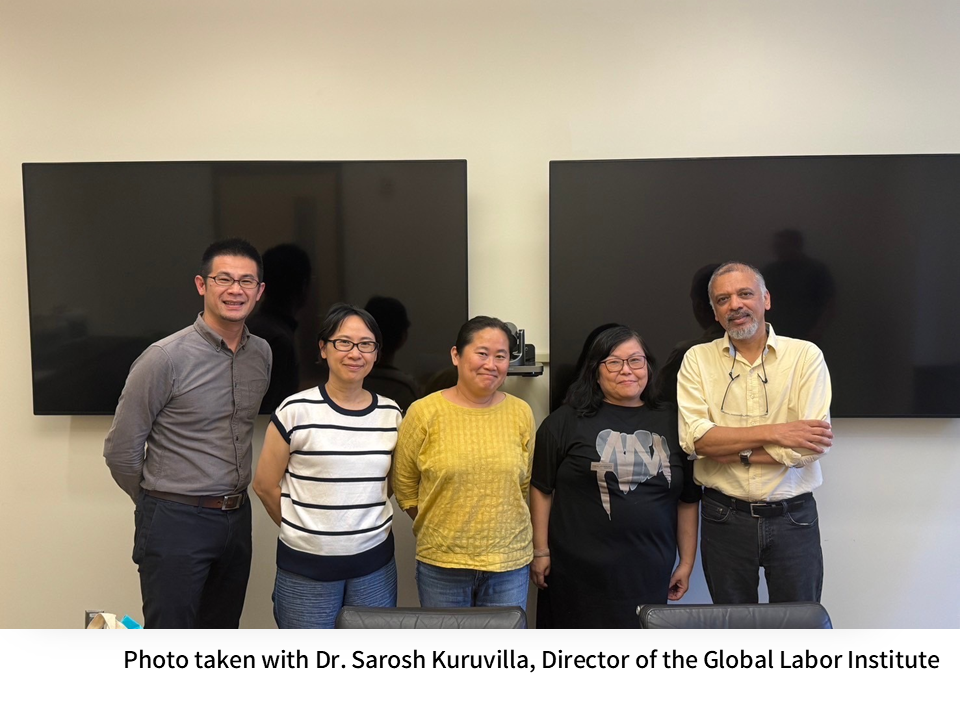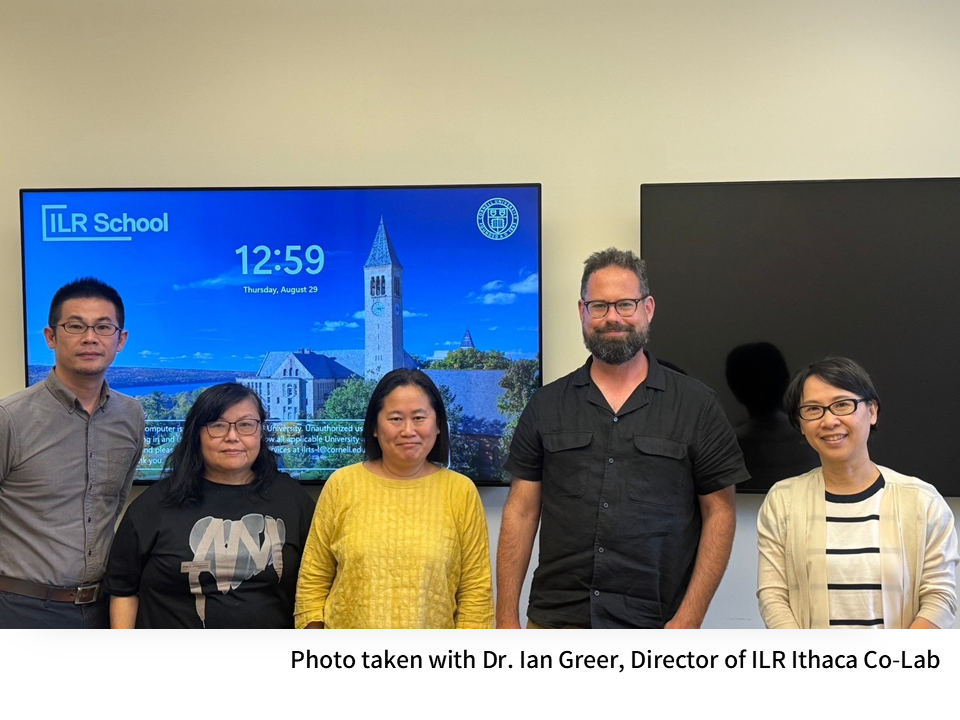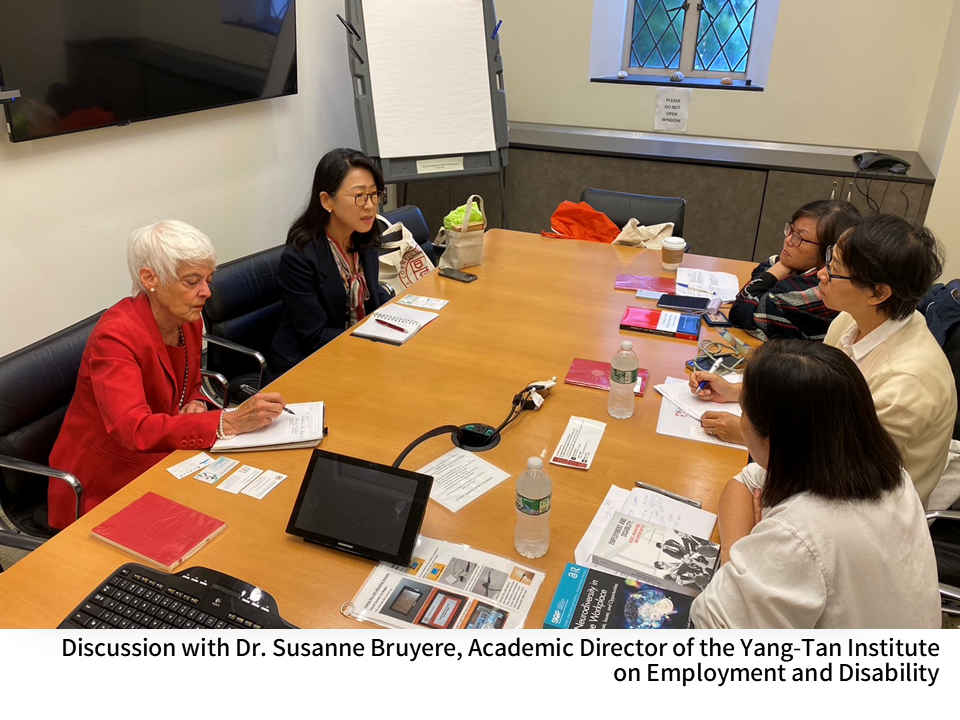The Benchmark Center-The CAHRS Research Center at the School of ILR, Cornell University(2024/08/27-08/31)
2024/08/27-08/31
The Benchmark Center-The CAHRS Research Center at the School of ILR, Cornell University
The team members from the Strategy and Human Capital Research Center, including Prof. Pao-Lian Chen and Assoc. Prof. Min-Nan Chen from NSYSU, along with Prof. Nian-Chi Liu from NTU and Prof. Chiung-Wen Tsao from NTNU, visited the Benchmark Center from August 27 to 31, 2024. They visited the School of Industrial and Labor Relations (ILR) at Cornell University and its Center for Advanced Human Resource Studies (CAHRS), as well as other research centers within the school, including the Smith Family Business Institute, ILR Buffalo Co-Lab, Center for Applied Research on Work, Climate Jobs Institute, ILR Ithaca Co-Lab, Global Labor Institute, Institute for Compensation Studies, and the Yang-Tan Institute on Employment and Disability.
This visit was arranged by Prof. Brad Bell, the director of the CAHRS research center, who organized a series of interviews and tours. The team aimed to gain a deeper understanding of the establishment purposes, organizational structures, and operational models of these centers. The primary goal was to explore how CAHRS operates, focusing on its practices in education, research, and industry-academia collaboration. During the four-day visit, the team explored nine centers and participated in thirteen exchange activities, with a packed schedule and a wealth of insights gained.
8/27-8/28 itinerary:
- Smith Family Business Institute
- ILR Buffalo Co-Lab
- Center for Applied Research on Work (CAROW)
- Catherwood Library and Kheel Center
8/29-8/31 itinerary:
- Center for Advanced Human Resource Studies(CAHRS)
- Climate Jobs Institute
- ILR Ithaca Co-Lab
- Global Labor Institute
- Institute for Compensation Studies
- Yang-Tan Institute on Employment and Disability
On the first day, the center team had an in-depth discussion with Prof. Wesley Sine, the academic director of the Smith Family Business Institute. The focus was on the center's business model and its major recurring activities, such as the family business case competition and management courses related to business succession. There was also a further discussion on the application of these concepts in Taiwan’s semiconductor industry, particularly regarding the business models between IDM and specialized divisions.
On the second day, the team engaged in an online exchange with Cathy Creighton, the executive director, and Rusty Weaver, the research director of the ILR Buffalo Co-Lab. They also had an experience-sharing session with CAROW, which provides training resources and research on union organizations. Additionally, they visited the college's specialized library, the Cather wood Library, which focuses on labor relations-related literature and archival collections. During the visit, the team learned about the library's spatial planning and design, as well as the research resources and support it offers.
During the visits on the third and fourth days, in addition to in-depth discussions with the two directors of the main benchmark, CAHRS, regarding the practical approaches to the center’s three core pillars—Connecting with Companies, Educating HR Teams, and Achieving Business Goals—. These discussions focused on their current business models and their currently prioritizing research directions.
The Connection Between Research Topics and Research Tools
Many ILR research centers focus on cutting-edge studies in HRM and labor relations. For instance, ILR Buffalo Co-Lab, ILR Ithaca Co-Lab, and CAHRS solicit research topics of interest from their corporate members or union organizations. They then connect these topics with ILR faculty and researchers to conduct studies. Research themes include employee experience and engagement, diversity and inclusion, leadership development, and AI and the future of work. These themes address critical challenges faced by modern organizations. The research findings are transformed into easily comprehensible knowledge and commercially valuable products. Through close collaboration with businesses and unions, ILR’s research brings innovative approaches and tangible impacts to the forefront of industry.
Returning to the model of "Industry and Corporate Talent Database" within our centers offers valuable insights into their methods while enabling an understanding of current trends and practices in HRM.
Policy Linkage and Social Impact
Several research centers within the ILR School focus on labor-management relations, serving as critical think tanks for the government. They delve deeply into traditional topics such as labor laws, union dynamics, and employment policies. At the same time, these centers address emerging challenges in the modern work environment, including the impact of climate change on employment, labor rights within supply chains, and the workforce inclusion of individuals with disabilities. Through these studies, the ILR School provides the government with precise and forward-looking policy recommendations, aiding in the formulation of labor policies that meet contemporary societal needs. Additionally, these research centers act as incubators for applied research, offering funding and organizational support for innovative topics and initiatives. This integration of theoretical exploration and practical application not only enhances the social impact of their research outcomes but also provides a clear direction for future developments.
CAHRS Research Center
Dr. Brad Bell, the Academic Director of CAHRS, focuses on planning activities that connect academia with industry. He translates academic research findings, technical terms, and conceptual frameworks into knowledge that is accessible and actionable for the business world. By organizing events that foster academic-industry interactions, Dr. Bell creates opportunities, enabling scholars to gain deeper insights into corporate operations. Meanwhile, Beth Flynn-Ferry, the Executive Director of CAHRS, brings her extensive HR expertise and professional network to the table. She is responsible for recruiting and servicing corporate clients and arranging events. Her background in the industry allows her to provide practical insights into corporate needs, leadership development, and other strategic areas. Together, Dr. Bell and Flynn-Ferry leverage their unique strengths to enhance CAHRS’s role in academia-industry collaboration and ensure that its initiatives are aligned with corporate demands.
Insights from the Four-Day Visit
The four-day visit to CAHRS included in-depth exchanges with various research center directors and scholars. These discussions revealed the diversity and depth of the ILR School’s research across different domains, underscoring its global leadership in human resource management and labor studies. The visit highlighted how the ILR School connects various stakeholders, including academia, policymakers, businesses, and labor organizations. Through advocacy, education, consulting, and partnerships, it creates a model of social impact that is both comprehensive and innovative.
Implications for Taiwan
These valuable experiences and insights sparked new ideas for our center. The team also reflected on how to adapt the successful practices of these centers to Taiwan’s center. Professor Pao-Lien Chen from NSYSU emphasized the importance of the Center for Strategic and Human Capital Center serving as a bridge between academia and the business sector in Taiwan, especially in the context of ESG trends. The goal is to elevate corporate human capital and prepare companies to compete in the global arena while ensuring research aligns with societal and industrial needs. By linking academic research to real-world challenges, Taiwan’s centers can enhance their relevance and impact on both academia and industry.
Photo Highlights
